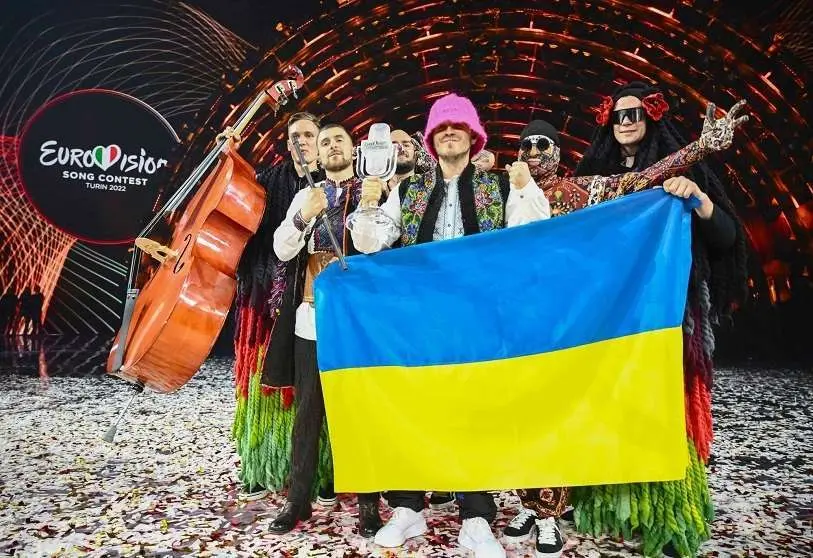Ukraine and NATO launch Eurovision missile against Russia

Ukraine has scored a huge victory over Russia, which is sweeping over it using an unprecedented, hypersonic and lethal weapon thanks to its megatons of universal popularity. Beyond the musical quality of the song "Stefania", performed by the group Kalush Orchestra, its triumph in the Eurovision Song Contest consecrates the already unquestionable moral victory of Ukraine and the Ukrainian people over their brutal Russian aggressor.
It was anticipated that the popular vote, that of the public across the continent plus Australia, which also participated, would have a decisive influence on the final result. The system set up by the European Broadcasting Union (EBU) gives equal weight to the votes of the national professional juries and the public. Thanks to the weight of the popular vote, Ukraine's 631 points was an overwhelming verdict, far outstripping Britain's Sam Ryder and his "Space Man" (466 points) and Spain's Chanel, who pulled off a masterful performance of "SloMo" (459 points).
No one dared to dispute the verdict, which immediately uncovered the more political readings of an event that has always boasted of being above the clashes and rivalries of the countries that make up the very old warring map of Europe. NATO, through the mouth of its deputy secretary general, Mircea Geoana, took the opportunity to highlight "the immense public support from all corners of Europe" for a country, Ukraine, which is suffering "the most brutal and cynical war launched [by Russia] since the Second World War".
Nor was British Prime Minister Boris Johnson quick to join in the situation. He was quick to jump into any debate that might make him forget that he could still be forced to resign for allegedly concealing the truth from Parliament about his behaviour in the so-called "partygate" affair. In any case, Johnson, a strong and early supporter of Finland and Sweden's immediate NATO membership, called Ukraine's Eurovision victory "a clear reflection of the talent of its representatives, but above all of Europe's indestructible support for the Ukrainian people". At almost the same time, the President of the European Council, the Belgian Charles Michel, expressed his wish that the next edition of the Eurovision Song Contest in 2023 "will be held in Kiev, in a free and united Ukraine".
And, predictably, Ukraine's own president, Volodymyr Zelensky, noted that "this victory augurs that the final triumph against the [Russian] enemy is not far off either", finishing with a proclamation typical of future post-war politics: "I promise that one day the Eurovision Song Contest will be held in a free, peaceful and reconstructed Mariupol".
The operation to triumph in the Eurovision "battle" was meticulously prepared, not least the very choice of the Kalush Orchestra group to achieve it. Its six members, all drafted to fight in the war, were able to attend thanks to a special leave granted by the Ukrainian president himself, a leave that will turn into their return to the front line as soon as they return to Kiev carrying the Eurovision crystal microphone that certifies their victory.
The group's leader and singer, Oleh Psiuk, flouted the EBU's usual strict rules, which prohibit any political allusions of any kind, both on stage and in public appearances in connection with the festival. The singer was not deterred and asked the entire audience - estimated at more than 200 million viewers - to "help Ukraine, Mariupol, Azovstal", the last redoubt of resistance in the martyred city by the Sea of Azov, where the last fighters seem determined to hold out without water, food or ammunition until death rather than surrender.
With great command of the stage, Oleh Psiuk accentuated his political side by also proclaiming shortly after his triumph that his wish is to "welcome the contestants of the next Eurovision Song Contest in a new, integrated, developed and flourishing Ukraine".
Meanwhile, Russia, excluded from the festival, continued its offensive in the Dombas, while in Kiev a US Senate delegation led by Republican leader Mitch MacConnell pledged President Zelenski's full support in providing an immediate $40 billion in additional military aid.

